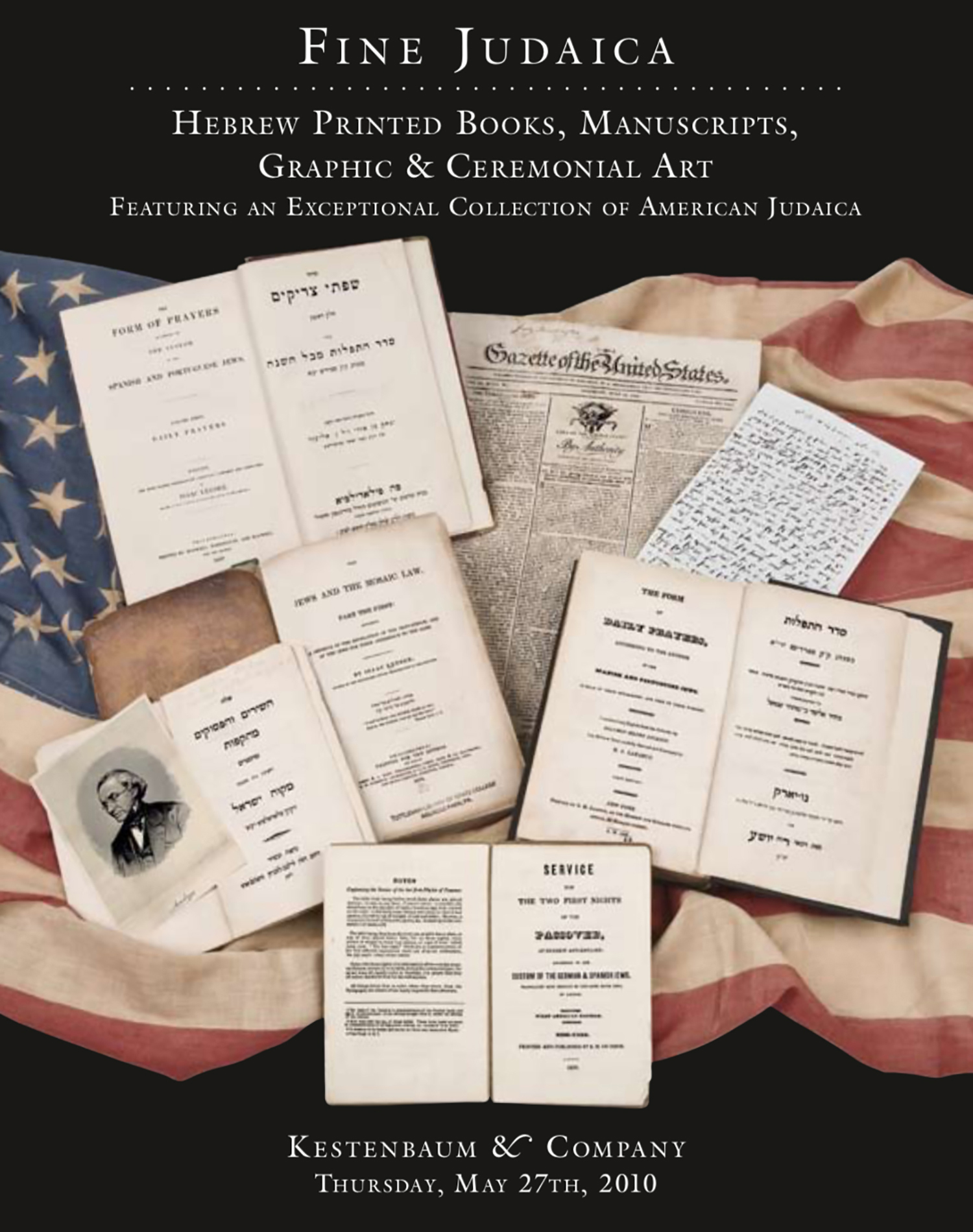Hagadah shel Pesah. Nr. 7 Internment Camp, Hay, Australia, 5701 / 1941.

AUCTION 48 |
Thursday, May 27th,
2010 at 1:00
Fine Judaica: Hebrew Printed Books, Manuscripts, Graphic & Ceremonial Art Featuring an Exceptional Collection of American Judaica
Lot 104
(HAGADAH).
Hagadah shel Pesah. Nr. 7 Internment Camp, Hay, Australia, 5701 / 1941.
Hay, Australia: 1941
Est: $5,000 - $7,000
PRICE REALIZED $7,250
EXCEPTIONALLY RARE WAR-TIME HAGADAH. From the Estate of an Austrian-American Jew, a former detainee in the Hay Internment Camp.
The Hagadah was produced in Australia under primitive conditions by German Jews held prisoner by the British under suspicion of being enemy-aliens.
Hay is a small town in the western Riverina region of south-western New South Wales, Australia. During World War II Hay was utilized as a prisoner-of-war and internment centre, due in no small measure to its isolated location and three high-security camps were constructed there in 1940. The first arrivals were some two thousand refugees from Nazi Germany and Austria, almost all of them Jewish. They had been originally interned in Britain when fears of invasion were at their peak and transported to Australia aboard the HMT Dunera. They arrived at Hay on 7th September 1940 and were held under the guard of the 16th Garrison Battalion of the Australian Army.
These internees at Hay became known as the ‘Dunera Boys’. The internment at Hay of this assemblage of refugees from Nazi oppression in Europe was an important milestone in Australia’s cultural history. Slightly less than half of those interned at Hay chose to remain in Australia after the war, however the influence of this group of men on subsequent cultural, scientific and business developments is difficult to over-state; they became an integral and celebrated part of the nation’s cultural and intellectual life. The 'Dunera Boys' are still fondly remembered in Hay; every year the town holds a 'Dunera Day' in which many surviving internees return to the site of their former imprisonment.
